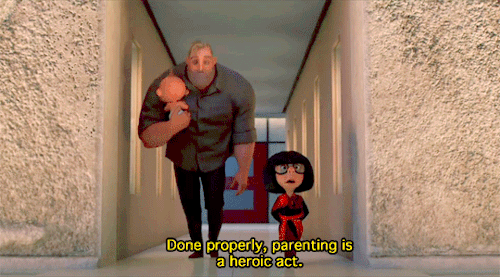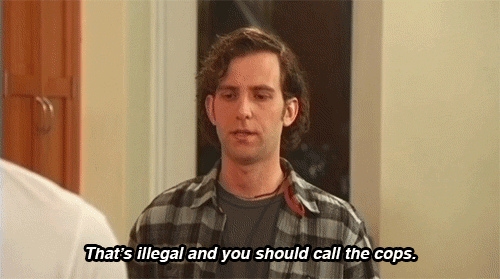

Criminal,Family
5 experiences every Malaysian child grew up with... that can be child abuse
over 6 years ago ZY Ho[The image above taken from the Kee’s World series. Read the rest on Star2]
Based on the Welfare Department’s statistics, 14 child abuse cases happen in every day in Malaysia. If you think this is a high number, a disturbing thought we can add is that these are only reported cases – there may be others that are unreported.
Very generally, there are three main laws that cover child abuse… the Penal Code, the Sexual Offences Against Children Act 2017, and the Child Act 2001 that deals with the overall welfare of a child. But here’s the thing – whenever the term “Child Abuse” is used, the first image that comes to mind would be serious physical violence or sexual abuse. However it may surprise you to know that the Child Act 2001 covers some of the common punishments and practices we grew up with – meaning they may actually fall under the definition of child abuse.
But before you start accusing your parents of child abuse because they chased you around with a rotan as a child, the law actually takes into account other factors such as severity and persistency (how often it happens). So let’s let’s take a look at what the Child Act actually covers in regards to...
1. Beating and bruising a child (aka Kena Rotan)

If you grew up in Malaysia, chances are you have been disciplined by your parents or teachers through some form of corporal punishment (spanking, caning, etc). In most Asian families, corporal punishment is seen as the most ‘effective’ way to discipline a child. However, this form of punishment could amount to child abuse under section 31 of the Child Act 2001. Section 17(2)(a) of the Child Act explains physical abuse as follows:
(17) “A child is –
(2)(a) physically injured (abused) if there is substantial and observable injury to any part of the child’s body as a result of the non-accidental application of force... that is evidenced by… a laceration, a contusion, an abrasion, a scar, a fracture or other bone injury, etc.”
So, if you hit your child with a rotan or hanger (or anything else) and it leaves bruises, marks, or scars on his/her body, this is child abuse under the Child Act. If you’re found guilty of the offence, you’ll be liable to a fine up to RM 50,000, and/ or 20 years imprisonment. For example, a mother was sentenced to a total of 30 years jail and fined RM 100,000 for regularly beating up her 12-year old daughter and 10-year old son with her bare hands and other objects.
2. Leaving a young child alone at home or in the car

It may be hard to let your children follow you everywhere you go. So sometimes, you may be thinking of letting them alone at home or in the car when you need to do something very quickly.
The law does not provide a minimum age to leave a child alone at home, but if you leave a young child alone when it is dangerous or unreasonable to do so, you can get into trouble under section 33 of the Child Act for “leaving a child without reasonable supervision”.
You can easily be fined up to RM 5,000 and/or imprisoned up to 2 years. An incident happened in October 2018, where a woman was charged under section 33 of the Child Act when she left her 6-year old niece at home alone for approximately two hours without reasonable supervision.
3. Neglecting your child

No, this isn’t a repeat of the previous point.
As a very simplified explanation of the difference, it’s that point #2 involves the child being unsupervised for a short period of time; while this point involves the child is being neglected (physically or emotionally) over a long period of time.
As an example, there may be parents that focus purely on earning money to provide a better standard of living for their children, at the cost of spending time and giving attention to them. This can be considered a form of neglect as neglecting a child not only means that you refuse to give a child food, shelter, or clothes – it also means that you do not give them sufficient emotional support.
If this causes the child to suffer from a mental or behavioral issues such as anxiety or depression, it is a form of child abuse under section 31 of the Child Act:
(31) (1) Any person who, being a person having the care of a child—
(a) abuses, neglects, abandons or exposes the child in a manner likely to cause him physical or emotional injury… commits an offence
If you were found guilty, you will be liable to a fine up to RM 50,000, and/ or 20 years imprisonment.
4. Threatening and humiliating your child

It’s pretty common to scold and yell at your kids. Of course, scolding by itself isn’t illegal. However, if you have gone too far with the humiliation or threats towards your child, and it causes them to suffer from substantial mental or emotional disorders, you can be liable for emotionally abusing your child under the Child Act.
The Act does not specifically state that verbal abuse is a type of child abuse, but it does prohibit a person from causing a child to suffer from emotional injuries. Section 17(2)(b) explains ‘emotional injury’ as:
(17) “A child is —
(2)(b) emotionally injured if there is substantial and observable impairment of the child’s mental or emotional functioning that is evidenced by… a mental or behavioural disorder, including anxiety, depression, withdrawal, aggression or delayed development”
There have not been any Malaysian cases (that we could find) where a parent has been charged for verbally abusing a child, but there is a case where a father is said to have emotionally abused his daughter by threatening to end their father-daughter relationship or to kick her out of the house if she refused to follow his instructions. When the daughter (now an adult) sought therapy for depression and low self-esteem, it was determined that many of her psychological issues stemmed from her father’s emotional abuse.
5. Not reporting suspected child abuse

Perhaps you may have encountered a situation in a mall, where a parent is beating their child in a way that made you question if it went beyond the boundaries of discipline. But, like many other people who may have also seen it happening, you just…..walked away.
There may be many reasons that this might happen… perhaps you don’t want get involved, or you didn’t know it was child abuse in the first place (though you have no excuse now that you’ve read this article).
Whether or not you’re legally obliged to make a report depends on what your role is, and what kind of abuse is involved. Under the Child Act, reporting suspected physical or emotional abuse is mandatory if you are a:
- Doctor
- Family member
- Child care provider
Failing to do so can make you liable for a fine up to RM 5,000 or imprisonment up to 2 years. However, if you are none of the above, there’s no legal obligation for you to make a report.
However, you are legally required to make a report if it involves sexual abuse (which includes grooming) regardless of your relationship to the victim. Even if you’re just a regular member of the public who happened to be walking by and witnessed the event, you can be fined up to RM5,000 for not reporting it.
How do I make a report?

What we consider good parenting is usually influenced by how we grew up, and chances are pretty high that we’ve experienced at least one of the first four points above. Although the law is clear that physically hitting is unlawful, in reality a lot of parents still hit their children as a form of “discipline” or “tough love”. But the main difference between proper ‘discipline’ and child abuse is the severity and how often it happens- basically the difference between you see a friend at school with light cane marks and another with large purple welts.
The general public should report child abuse cases although there are no legal requirements to do so. Here are some ways where you can report any child abuse case if you come across one:
- Via Talian Nur – Dial 15999
- Via Hospital – Bring the child to the nearest hospital and report to the Emergency Department/ Outpatient Department that you suspect the child has been abused
- Via Police – Make a police report on the suspected abuse, or call 999